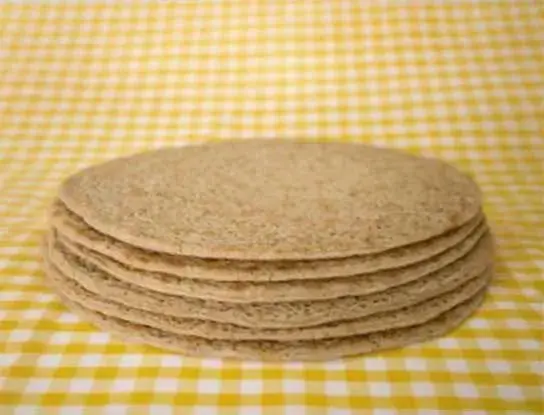
Traditional Yorkshire havercakes
Credit: The Yorkshire Society
Havercake Man
"When I was a child foodstuffs were often prepared under filthy and unhygienic conditions. Old Dans Bakehouse was no exception.
The bakehouse was quite near where I lived and sometimes us children would go “down the ginnel” to his bakehouse to watch him working. The mice, cockroaches and other vermin didn’t matter to us then, but as I grew older, I realised how awful it must have been. But we seemed to thrive on it.
Old Dan used to call every Friday night with his wares. Ha'penny a cake or three a penny. We had havercake rolled up with old-fashioned black treacle for supper, “good for the bowels” it was said. The remainder was hung up on the indoor clothesline and was crisp by morning. We the ate it at various times with “mucky fat”or, as a treat, with home made blackberry jam.
As the chorus says, it was a tasty meal. It was often put on free in the Inn taprooms of the spittoon and sawdust days. The “mucky fat”was the dripping from roast brisket or sirloin, the “mucky” bits were from the bottom of the jar where the jellified gravy had set.
The expression “fit for a Queen”( meaning Queen Victoria ) was often used by old taproom characters after a good feed of havercake and “mucky fat”.
The name havercake is presumed to derive from haversack, meaning the food or oat sack, used for storing the grain."
Original note by Tommy Daniel.


